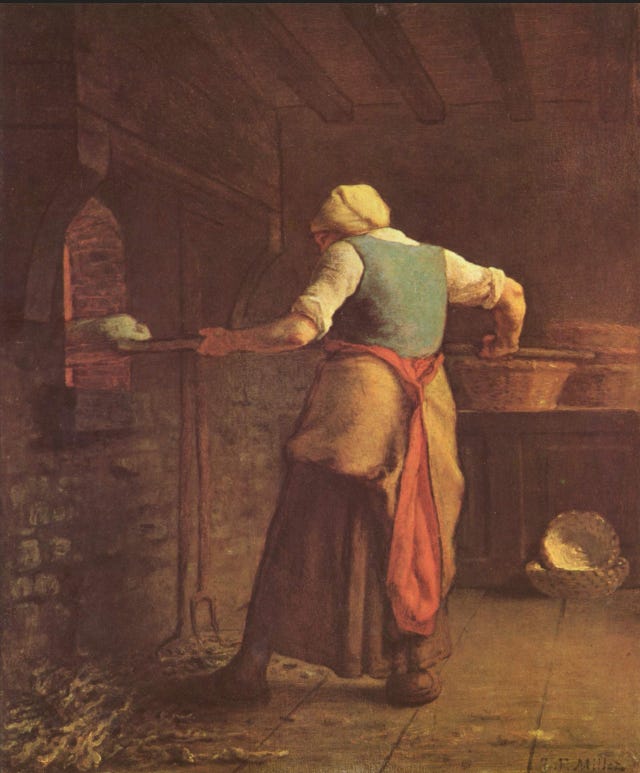I Love the Smell of Bread in the Morning.
An early morning visit to a French boulangerie.
I've always felt that nothing evokes France quite like the sound of screaming swallows circling a village church, paired with the gentle rumble of tyres on cobblestones. But recently, something else struck me. An early start led me to stop at a boulangerie—the lights were already glowing, a queue had formed for fresh baguettes, and the aroma was irresistible. I paused, completely captivated, and was reminded of how deeply woven bread-baking is into the fabric of everyday French life.
Bread shortages were a major spark for the French Revolution. In 1789, Parisians stormed the Bastille not just for weapons—but for grain. The Flour War of 1775, a series of riots over bread prices, had already shown how volatile the situation was.
During the Revolution, the Law of the General Maximum was passed to fix bread prices and ensure equal access for all citizens. Bread became a symbol of equality, and the humble baguette eventually rose to represent the democratic spirit of France.
The “Baguette Law” – Décret Pain (1993)
In 1993, France passed Décret n°93-1074, commonly known as the Baguette Law, to protect the integrity of traditional French bread. It’s not just about taste—it’s about heritage, craftsmanship, and resisting industrial shortcuts.
Here’s what the law requires:
Ingredients: Only wheat flour, water, salt, and yeast are allowed. No additives, preservatives, or improvers.
Production: The bread must be mixed, kneaded, fermented, and baked on the premises where it’s sold. That means no frozen dough or centralized baking.
Freshness: The fermentation process must be respected to develop proper flavor and texture.
Labeling: Only bread made entirely on-site can be called “pain maison” (homemade bread) or “traditional French bread”.
What Makes a “Boulangerie”?
Not every shop selling bread can call itself a boulangerie. To earn that title, the bakery must:
Bake bread from scratch on-site.
Follow the traditional methods outlined in the decree.
This protects artisan bakers and ensures that when you walk into a boulangerie, you’re getting the real deal.



